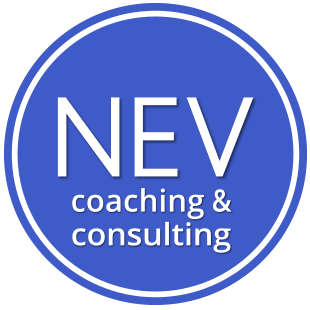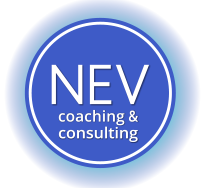 In today’s world, where suddenly it seems that “everyone is a coach” of something or other, it has become increasingly difficult to distinguish the values, wisdom and practices of truly quality coaches, versus the rest.
In today’s world, where suddenly it seems that “everyone is a coach” of something or other, it has become increasingly difficult to distinguish the values, wisdom and practices of truly quality coaches, versus the rest.
And even more difficult, as a result, to know how to find a truly excellent coach for YOU.
From what we’ve heard over the years, many folks have had less than satisfactory experiences with certain practicing coaches. Leaving them utterly disappointed, even reluctant, to ever attempt another coaching engagement. Which is truly unfortunate, as coaching still remains one of the most powerful, effective, and liberating approaches to optimizing your personal and professional success and wellbeing.
In this post, we happily share with you some of the gold standard practices of finding, evaluating and choosing the right coach for your next transformation and best support. Practices we ourselves uphold with everyone and anyone who crosses our path.
When you decide to hire a coach, a Quality Coach, for yourself or your organization, follow these tips and you’ll know how to choose best.
1) What IS Quality Coaching?
I define it as “creating a secure, caring and rigorous space, with intelligent, relevant and expert guidance, so the person or team is able to honestly, thoughtfully and effectively find their own solutions and next steps”.
Coaches exist on the same level as their clients (so we are not above you) and we follow the same rules of confidentiality as doctors. But the key to understand is that we are not here to “save you”, you always “save” or advance yourself.
The objective is to accompany you in the process of working through your difficulties, as well as be the right sounding board for your ideas and hopes, to arrive to realistic, manageable, actionable and measurable progress in the fulfillment of your unique goals, be they personal or professional.
If you’d like to know more about it, see our previous post on “Why Coaching?”
2) The Process of Quality Coaching
There are purists who believe that a coach should only ask open questions and little more. Also, those who are very directive, bordering on the line of being mentors or consultants.
This varies greatly on the particular styles of a given coach, to the particular style of the client, and then the nature of their circumstances and objectives.
That said, in my opinion, here are certain principles that stand regardless:
About the Coach:
- Your coach is not here to give you advice and certainly not here to force you to make changes you are not ready to make.
We are here to challenge our coachees, guide them in putting structure and timing to their practices and decisions. Sometimes we offer helpful insights and suggestions, but always with respect for their unique challenges, priorities, and objectives.
- A Quality Coach may share, appropriately, their own experience or that of their clients (with confidentiality preserved).
But only when they think this will truly add value to the coachee and process. It will help them unblock, strengthen the validity of their own experience. Even give them ideas for possible solutions and next steps.
About the Coachee:
- There are coaches, like myself, who may give some “homework” to their clients, which are just personal reflections or actionable practices to apply the concepts discussed in the coaching sessions.
This is to ensure that the coaching sessions are not just “therapeutic” and conversational but also lead to meaningful progress.
In the beginning, I may give you suggestions. Later on, as you gain greater clarity and ownership of your process, we will ask you to do this yourself.
- Ultimately, the person responsible for your results is YOU.
That doesn’t mean we don’t take active responsibility for the coaching process because we most certainly do, but the whole point of coaching is that you do not create a dependency on the process or on the coach.
You are empowered to move forward in the way that makes most sense for you, and that you are willing to do the work necessary to reflect, experiment, make the change and take responsibility for those results.
Your life is your own and no one will understand you the way you can understand yourself. Good coaches know that and will be dedicated to helping you prepare and advance this as best as possible.
3) So how DO you choose a Quality Coach?
As with any practitioner who will be working with you on the intimate details of your life, work and organization, it is important that there is true compatibility, rapport, care, trust and alignment.
But beyond that, also look for the following:
- Definitely always connect with at least 3 coaches for a consultation.
And good coaches usually give one for free or for a reasonable price. Even if you really like one, just like with any good hiring process, give yourself the space and discovery to see a few more just so you know who is in the market. Then you can choose one that truly makes you feel good and inspires confidence in the coaching process that is to come.
-
A good coach should never PUSH you into working with them.
It is understandable to follow up on a consultation or a proposal. Then again, you should never feel negatively pressured to choose one or the other.
- The sessions themselves should feel fluid, natural, organic, while any given coach will certainly use the breadth of their experience, training, models, etc. in providing you with the best guidance possible.
You are not at a training course where you have to rigidly continue a set structure.
A good “Quality” Coach should be able to flow with you, your team and your diverse and even unexpected circumstances (within reason), so that each session is truly relevant, meaningful and helpful.
-
A Quality Coach should have legitimate testimonials from other clients.
Just so you can hear in greater detail the experience others have had with them.
Due to the nature of the work, it may not be possible to consult previous clients of a given coach. However, if the coach is effective, they should have those recommendations readily available on their website, LinkedIn, or the like.
-
A good coach should have their own coach(es) or be regularly going through processes of coaching supervision.
We are not above the rest. As I always say to my clients, even being a coach I am of course still human. I am truly dedicated to advancing myself and giving the best I can to others. So, I need to regularly be working on my own challenges and objectives.
This doesn’t mean that a given coach has to always be working with their own coach or in supervision. Just regularly enough. So ask them about this.
- Trust your gut.
This is an intimate, deep process based on mutual trust, care and the desire to help you achieve your success.
You will know when the right person comes around.
If you have any questions about this or our other specialties, don’t hesitate to contact us. We always value your feedback and interest.



Another winner, Nev. Love the definition and the bullet points are exactly what I tell my clients, written so clearly that I want to put them into my Welcome Packet.
I’m not sure that I agree that you need to talk with 3 coaches before you make your decision. It IS about feeling that THIS coach can help me and about following your gut. I’ve gone the route of talking with three surgeons recommended to me, and halfway through my meeting with the second, I knew the first one was the right one–and he ultimately saved my life.
Not that coaching can be compared to surgery…but if the initial conversation with a coach is powerful and both opens you and scares you a little, you’re probably with the right coach.
Thank you very much Sandy, for your insight and kind regards. I definitely agree that when one feels that sense of rightness and chemistry with a coach – or any type of practitioner – they should not ignore it and it does not necessarily mean you must see others for comparison. Rather that some people are so new to this process, they don’t know what to expect and sometimes settle for working with coaches who give the “right image” but don’t actually build rapport with them. It’s simply to say that it is ok to take a good look before choosing. Thank you as always for your wonderful support and my very best wishes to you always.